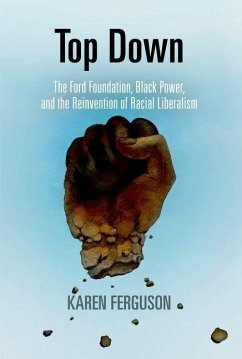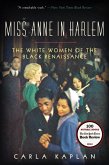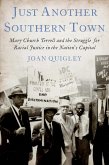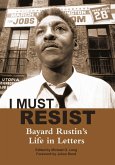At first glance, the Ford Foundation and the black power movement would make an unlikely partnership. After the Second World War, the renowned Foundation was the largest philanthropic organization in the United States and was dedicated to projects of liberal reform. Black power ideology, which promoted self-determination over color-blind assimilation, was often characterized as radical and divisive. But Foundation president McGeorge Bundy chose to engage rather than confront black power's challenge to racial liberalism through an ambitious, long-term strategy to foster the "social development" of racial minorities. The Ford Foundation not only bankrolled but originated many of the black power era's hallmark legacies: community control of public schools, ghetto-based economic development initiatives, and race-specific arts and cultural organizations. In Top Down, Karen Ferguson explores the consequences of this counterintuitive and unequal relationship between the liberal establishment and black activists and their ideas. In essence, the white liberal effort to reforge a national consensus on race had the effect of remaking racial liberalism from the top down-a domestication of black power ideology that still flourishes in current racial politics. Ultimately, this new racial liberalism would help foster a black leadership class-including Barack Obama-while accommodating the intractable inequality that first drew the Ford Foundation to address the "race problem."
Dieser Download kann aus rechtlichen Gründen nur mit Rechnungsadresse in A, D ausgeliefert werden.









